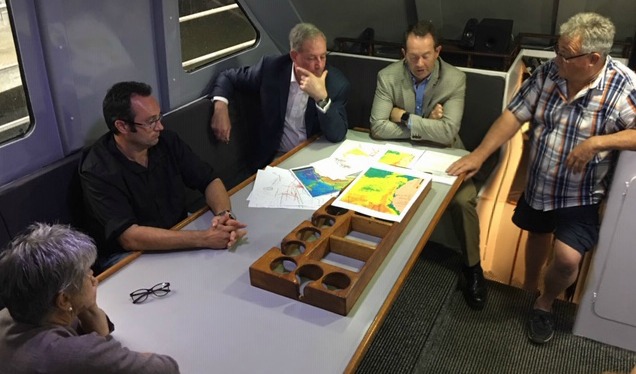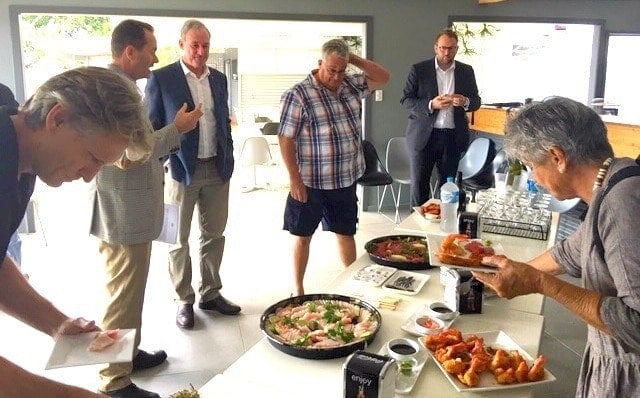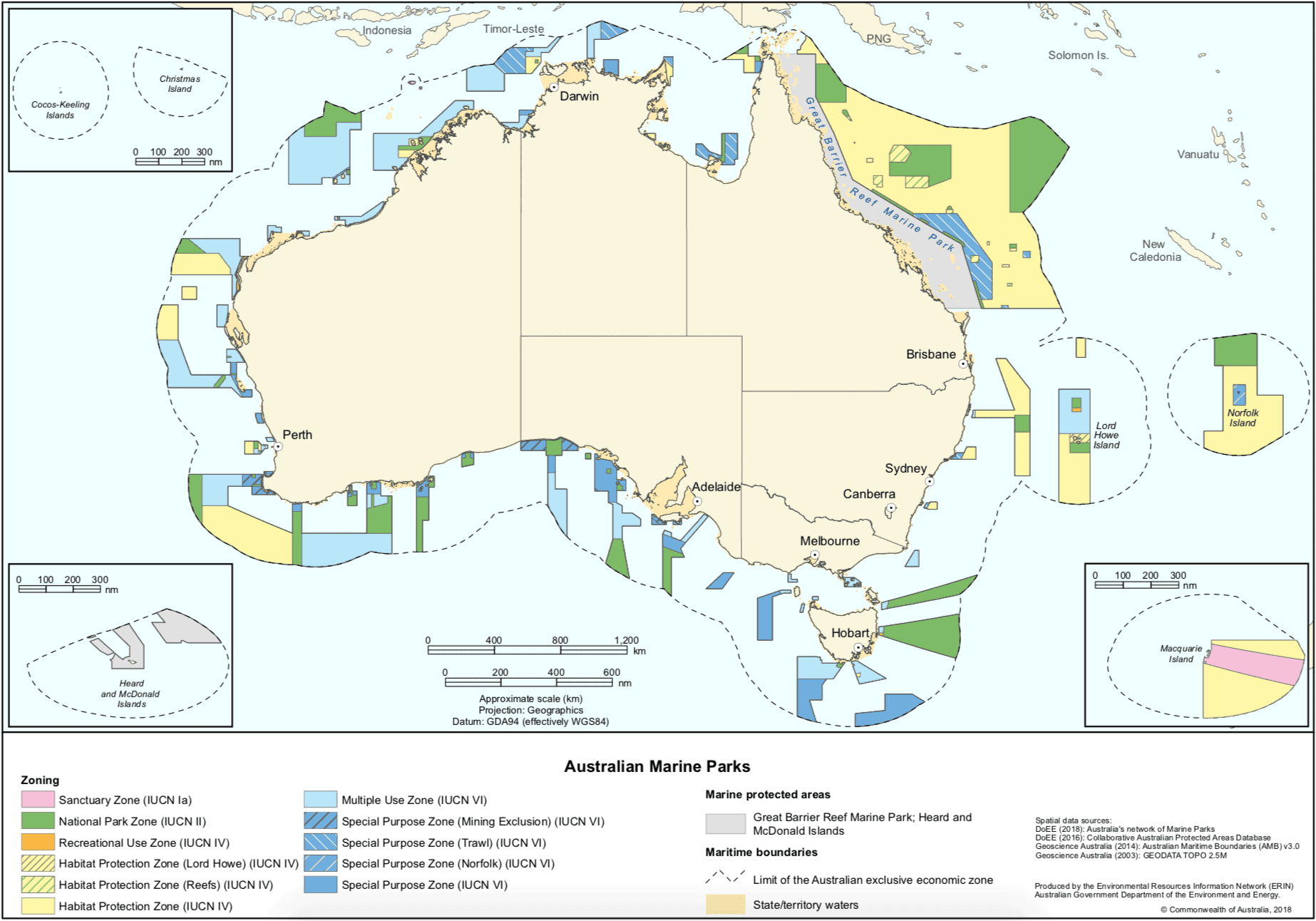Fishing for change: Operators meet with politicians to discuss MPA impacts
After many years the new commonwealth marine parks are welcomed by Australian longline fisheries. However, there is an urgent need for the federal government to review and address adverse impacts through the Fishing Business Assistance Package.
This was the key discussion topic at a Fisher Fishing Council event held in Mooloolaba, Queensland, on 29 October 2018.

Assistant Minister for Fisheries the Hon. Richard Colbeck, Local MP Mr. Andrew Wallace, Nick and Mike Williams and Annie Lamason discussing the impact of Commonwealth Marine Parks on longline fishing companies.
The event, organised by the local member Mr. Andrew Wallace and Tuna Australia, brought together Senator Richard Colbeck, Assistant Minister for Agriculture and Water Resources, and five fishing business owners to discuss the challenges facing commercial tuna operators in the Eastern Tuna and Billfish Fishery.
In August 2018, the senate passed the commonwealth marine parks package, which establishes 60 marine protected areas (MPAs) across Australia to help conserve marine habitats and marine species.
While commercial longline fishing is permitted in some areas of marine parks, a major flaw in the “lines on the water” scenario where longline fishing is prohibited is the lack of understanding and recognition of vessel drift and distance. This issue, if not addressed, will severely impact the profitability and possible risk of prosecution, especially those with smaller vessels that fish closer to their home ports, says Tuna Australia Chair Jim Uttleymoore.
Mike Williams put to the Minister that the objectives outlined in the plan do not address the fairness and equity issues that will arise in operator businesses and for some will mean a financial burden to change the way they now operate. The package discriminates on the basis of a fishing business’s ability to absorb the impacts.
With the removal of fishing access rights by compulsory acquisition there should be a fair compensation offered, not a “one size fits all” approach. With eligibility criteria in place, measures would be available to be accessed at the discretion of an operator.
In the case in the ETBF, it is quite clear that reducing access to Coral Sea albacore and yellowfin in the summer months will result in increased pressure on areas already utilised. The industry is also concerned about how these impacts will adversely affect vertically integrated businesses and how impacts will be felt in the future.
In light of these concerns, the fishing owners at the event stressed to Senator Colbeck that these impacts must be addressed under Just Terms consistent with the Australian constitution.

Other topics discussed at the meeting included the cost recovery system for AFMA levies, electronic monitoring, the Skilling Australia Fund, the future of the industry on the Sunshine Coast, and vessel building and repairs.
Such meetings are critical, says Uttleymoore, to inform politicians of the unique characteristics and vital contributions made in our species sustainable fishery.
